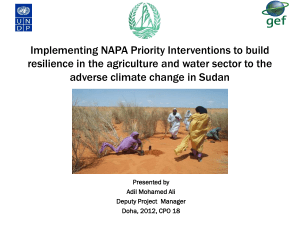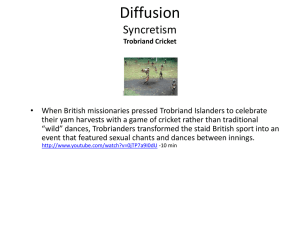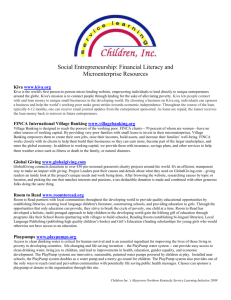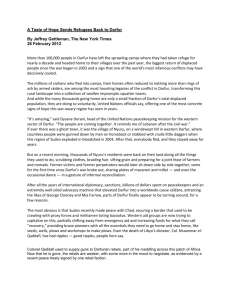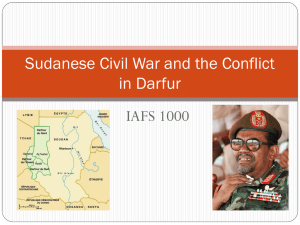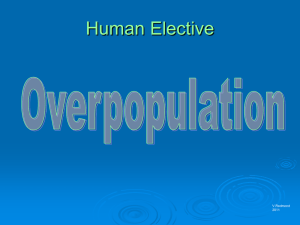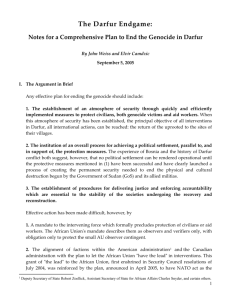State Department officials have been in the Darfur region
advertisement
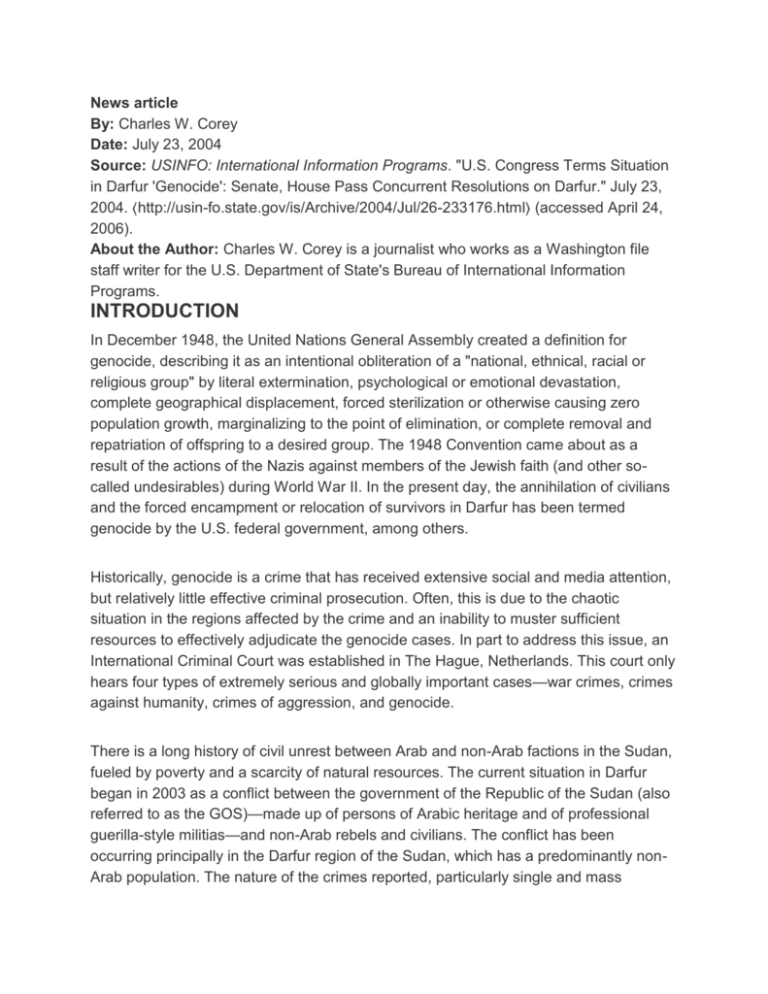
News article By: Charles W. Corey Date: July 23, 2004 Source: USINFO: International Information Programs. "U.S. Congress Terms Situation in Darfur 'Genocide': Senate, House Pass Concurrent Resolutions on Darfur." July 23, 2004. ⟨http://usin-fo.state.gov/is/Archive/2004/Jul/26-233176.html⟩ (accessed April 24, 2006). About the Author: Charles W. Corey is a journalist who works as a Washington file staff writer for the U.S. Department of State's Bureau of International Information Programs. INTRODUCTION In December 1948, the United Nations General Assembly created a definition for genocide, describing it as an intentional obliteration of a "national, ethnical, racial or religious group" by literal extermination, psychological or emotional devastation, complete geographical displacement, forced sterilization or otherwise causing zero population growth, marginalizing to the point of elimination, or complete removal and repatriation of offspring to a desired group. The 1948 Convention came about as a result of the actions of the Nazis against members of the Jewish faith (and other socalled undesirables) during World War II. In the present day, the annihilation of civilians and the forced encampment or relocation of survivors in Darfur has been termed genocide by the U.S. federal government, among others. Historically, genocide is a crime that has received extensive social and media attention, but relatively little effective criminal prosecution. Often, this is due to the chaotic situation in the regions affected by the crime and an inability to muster sufficient resources to effectively adjudicate the genocide cases. In part to address this issue, an International Criminal Court was established in The Hague, Netherlands. This court only hears four types of extremely serious and globally important cases—war crimes, crimes against humanity, crimes of aggression, and genocide. There is a long history of civil unrest between Arab and non-Arab factions in the Sudan, fueled by poverty and a scarcity of natural resources. The current situation in Darfur began in 2003 as a conflict between the government of the Republic of the Sudan (also referred to as the GOS)—made up of persons of Arabic heritage and of professional guerilla-style militias—and non-Arab rebels and civilians. The conflict has been occurring principally in the Darfur region of the Sudan, which has a predominantly nonArab population. The nature of the crimes reported, particularly single and mass murders, razing of villages, rapes and sexual assaults, the use of racist language by invading militias, loss of livelihood and forced removal or destruction of property (including business and livestock theft), and looting and vandalism of personal property, are consistent with the international crime of genocide. Several hundred villages in Darfur have been destroyed or significantly damaged, more than a million non-Arab people have been displaced from their homes to other parts of the country, and hundreds of thousands have fled the Sudan to refugee camps in Chad and elsewhere. There is widespread famine, lack of adequate water, and sharply increased infant mortality, as well as increased rates of infection, illness, and mortality among the affected population. The Arab militia group considered primarily responsible for the violence is called the Jingaweit or Janjaweed, and it works in tandem with GOS military forces in Darfur. Despite international efforts to bring an end to the hostilities, there are reports of continuing crimes against humanity, as well as genocide in Darfur. Also of international concern is the acute health crisis engendered by lack of food and water and conditions of overcrowding in refugee camps that the conflict has spawned. PRIMARY SOURCE Washington—Both chambers of the U.S. Congress adopted concurrent resolutions July 22 condemning the continuing atrocities in the Darfur region of western Sudan as "genocide" and asking the international community to join with the United States to help bring an end to the humanitarian catastrophe that is under way there. The U.S. House of Representatives passed its version (House Concurrent Resolution 467) in a vote of 422-0, with the U. S. Senate approving its version (Senate Concurrent Resolution 133) by voice vote. A concurrent resolution is a legislative proposal that requires the approval of both houses but does not require the signature of the president and does not have the force of law. These resolutions are often used to express the sentiments of both the House of Representatives and the Senate. In debate in the House of Representatives preceding the vote, the chairman of the Subcommittee on Africa, Ed Royce (Republican-California), said that with the vote, "the House of Representatives will go on record declaring the atrocities being committed in the Darfur region of Sudan to be 'genocide.' H. Con. Res. 467 is a statement for the world, and a stark warning to the Sudanese government." "We've heard about the atrocities government-backed militias are perpetrating in Darfur," he told his fellow lawmakers. "This resolution cites an estimated 30,000 innocent civilians brutally murdered, more than 130,000 people fleeing to neighboring Chad, and more than one million people internally displaced." Royce reminded the lawmakers that the Subcommittee on Africa has held several hearings on Sudan. "We've heard about the human suffering. We have also heard about how this killing is targeted and systematic. Villages are razed, crops are burned, and wells are poisoned. I fully support this resolution's determination that genocide is occurring in Sudan, as it played out in Rwanda 10 years ago!" "Those doing the killing need to understand that the world is changing," Royce said. He reminded everyone: "We have international courts to hold human rights criminals accountable. Information is being collected. The days of impunity are ending. That is a message that this resolution sends." "H. Con. Res. 467 deplores the failure of the United Nations Human Rights Commission to take appropriate action on Darfur," he declared. Royce said the commission failed earlier this year to support a United States-led effort to strongly condemn gross human-rights violations in Darfur. He credited the Bush administration with taking the lead in "seeking an end to the slaughter in Darfur" and addressing the humanitarian crisis there. "Indeed, the administration deserves much credit for achieving a North-South Peace Accord in Sudan. It has played a very good hand with the cards it was dealt. Congress has been supportive of these negotiations, including with the Sudan Peace Act." "It's cliché," he said, "but in Darfur, Khartoum is showing its true colors. Today, that government is hearing loud and clear that there will be no U.S. aid or improved relations, no support for the peace process, as long as the killing continues in Darfur." Also on July 22, Secretary of State Colin Powell traveled to U.N. headquarters in New York to discuss the situation in Darfur with U.N. Secretary-General Kofi Annan and to press for Security Council action to pressure the Sudanese government to disarm the Jingaweit militia. Talking with journalists after their private meeting, Powell and Annan said they had come together not just to put pressure on the government but also to help the hundreds of thousands in need. Both Powell and Annan stressed that they will continue to insist that Khartoum honor the commitment it made to the two leaders when they visited Sudan in early July. "We both agree that the international community must insist that the Sudanese government honor the commitments it gave when we both visited Sudan," Annan said. "It is important that the internally displaced people and the villages be protected. It is the sacred responsibility of the government of Sudan to do that and eventually disarm the Jingaweit and the other militias in the region." Powell said that Khartoum should not look on the U.N. efforts as meddling, but "an effort to save people who are in desperate trouble." There is no reason why Khartoum can't disarm the Jingaweit militias that have perpetrated large-scale atrocities against Sudanese civilians, Powell told his audience. The United States has presented a second draft of a resolution on Darfur to the Security Council, both Powell and Annan told reporters. Powell did not go into specifics on the new draft but said that it "puts down timelines and sets sanctions" if the timelines are not met. The secretary of state said that since his visit there has been "some modest improvement" in access for aid workers, the delivery of humanitarian supplies, and the number of African Union monitors in the area. "We are still, it is safe to say, not satisfied with the security situation," Powell said. Asked about whether the situation in Darfur can be called genocide, Powell responded that the United States is examining the issue very carefully. State Department officials have been in the Darfur region, interviewing victims in the camps and villages and sending reports back to Washington that will be used to make the legal judgment on whether to classify the situation as genocide. Nevertheless, Powell said, "whatever you call it, it's a catastrophe." SIGNIFICANCE Although there is semantic debate regarding whether the conflict in Darfur meets technical definitional criteria for genocide or for crimes against humanity, the human toll has continued to rise. Between February of 2003 and the end of the first quarter of 2006, more than 200,000 people in Darfur were reported to have died, more than three million (of an estimated 7 million in total) persons were displaced, either internally or outside of Darfur, and most were starving. There have been numerous cease-fire orders and at least six rounds of formal peace talks involving the government of Sudan, the Jingaweit, and the non-Arab rebel forces, none of which have been successful thus far. Conflicts between the Arab and non-Arab (rebel) factions in the Sudan have occurred intermittently for the past few decades. Government supported anti-rebel violence has been reported for the same length of time in the region. In addition, the Sudanese government has been alleged to have supported and trained various militia groups, the Jingaweit among them. One distinguishing feature of the conflict in Darfur, which sets it apart from political machinations or civil war, is the lack of organized resistance by the non-Arab peoples. The vast majority of those impacted by the fighting have been civilians, large numbers of whom are women and children. The U.S. government, in partnership with several NGOs (non-governmental organizations) conducted a large-scale (more than 1,000 participants) random sampling survey of displaced residents of Darfur at a variety of locations in Chad about eighteen months after the most recent episodes of violence began. More than ninety percent of those interviewed stated that their villages, when attacked by the GOS soldiers, the Jingaweit, or both forces, were able to offer no resistance or defense. Ninety percent stated that there were no rebel military or militia forces present in their villages before the invasion or episodes of violence. It was the firm and independent conviction of those interviewed that the violence was ethnically based and consisted of attacks against non-Arab citizens. The widespread violence has made it difficult for NGOs and other humanitarian, crisis, and relief agencies to provide adequate nourishment and medical care, and the United Nations Security Council has repeatedly requested that humanitarian access be facilitated. The lack of access to aid, as well as the other crimes against humanity and acts of genocide, is now considered differently than in the past, in no small measure because of the atrocities that occurred in Rwanda in 1994. With the advent of the International Criminal Court, crimes against humanity and acts of genocide can potentially be adjudicated in an international setting and appropriate penalties imposed. As of 2006, the violence in the Sudan continues, as do attempts to bring the parties in the conflict together for peace-talks. The non-Arab citizens of Darfur continue to be victimized, displaced, and killed. They still lack food, potable water, access to adequate medical care, and the relief that humanitarian agencies, international governments, and NGOs seek to provide

